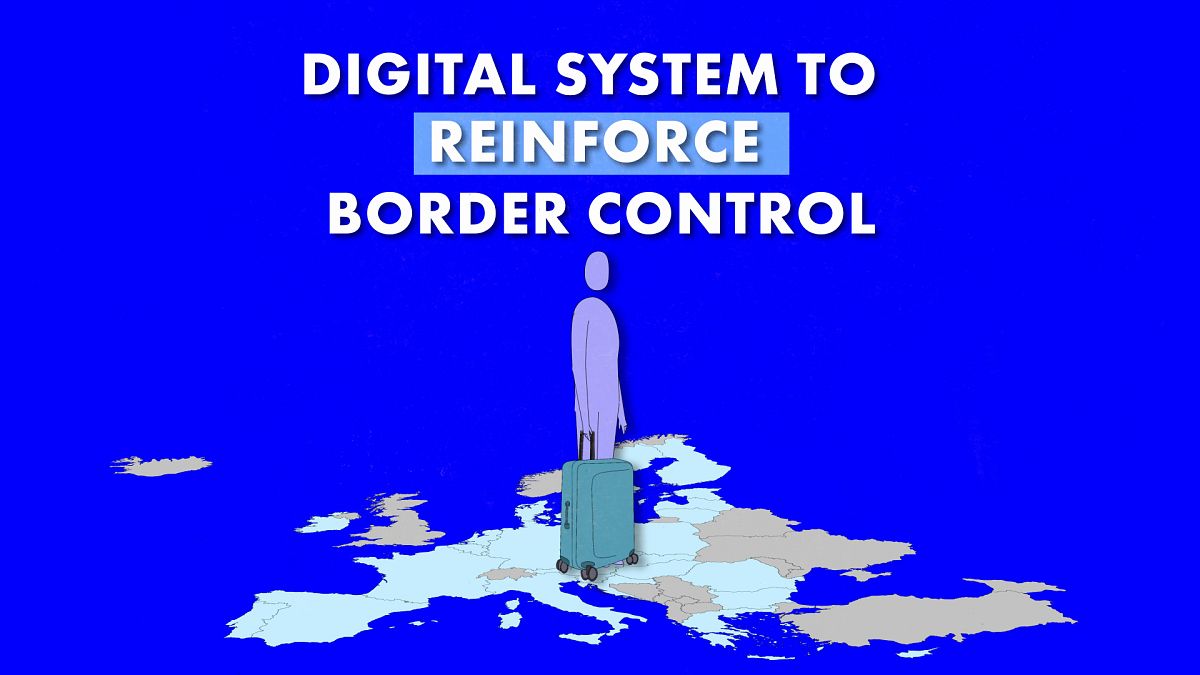The new regulation will apply to third-country nationals travelling to EU countries for holidays or business, staying for up to 90 days in any 180-day period.
One of the priorities is to better identify victims of crime, including human trafficking, and offenders, in particular those who pose a terrorist threat. Indeed, the decision to introduce this legislation came after the terrorist attacks in France in 2015 and Belgium in 2016.
EU leaders also want to address the risks of overstaying visitors who become irregular migrants. Both issues are increasingly important in public debate and policy-making, but the road to implementation has been long.
“There were mainly issues to resolve at a technical level, because all EU member states involved had to submit a declaration of readiness. It seems to have taken some time to build the system,” explains Vincenzo Genovese, who reports for Euronews on migration and security policies.
The system will record the person’s name, the type of travel document and biometric data – fingerprints and facial images – but also all dates of entry and exit.
“It is definitely a migration control tool, because we know that a large proportion, perhaps even the majority, of irregular migrants in the European Union arrive regularly and then overstay,” says Vincenzo Genovese.
Irregular entries also include asylum seekers, and the European Union Agency for Human Rights warns of the risks of rights restrictions for those seeking protection in another country.
“I believe that the most important thing for an asylum seeker is to be safe. When people need protection there are procedures, and it is up to the member states to follow them and analyse each case, on a case-by-case basis,” the rapporteur for the regulation in the European Parliament, Assita Kanko, told Euronews.
France, Netherlands and Germany lagging behind
The main worries about the Entry/Exit System are cyber security risks and system malfunctions, but Kanko is optimistic, saying that gradual implementation “will allow member states to phase in at their own tempo and contingency plans are also foreseen”.
France, the Netherlands and Germany are the three member states that have lagged the most, according to the Belgian parliamentarian from the European Conservatives and Reformists group.
“We will negotiate with the Council and look at where there are still concerns and how we can address them. The most important is that we will give our law enforcement officers the opportunity to analyse data in real time to track down criminals,” Kanko stressed.
The data will be accessible for border control authorities, the police authorities of each country and the EU Agency for Law Enforcement Cooperation (Europol).
All but two EU member states will use the scheme, exceptions being Cyprus and Ireland, who will continue to stamp passports manually. It also applies to four Schengen-associate countries: Iceland, Liechtenstein, Norway and Switzerland.
The start date will be set by the European Commission, and negotiators have stressed that October is a viable date. From there, member states will be able to adopt a gradual implementation or apply the regulation fully from day one.
Watch the video here!
Journalist: Isabel Marques da Silva
Content production: Pilar Montero López
Video production: Zacharia Vigneron
Graphism: Loredana Dumitru
Editorial coordination: Ana Lázaro Bosch and Jeremy Fleming-Jones
Read the full article here


